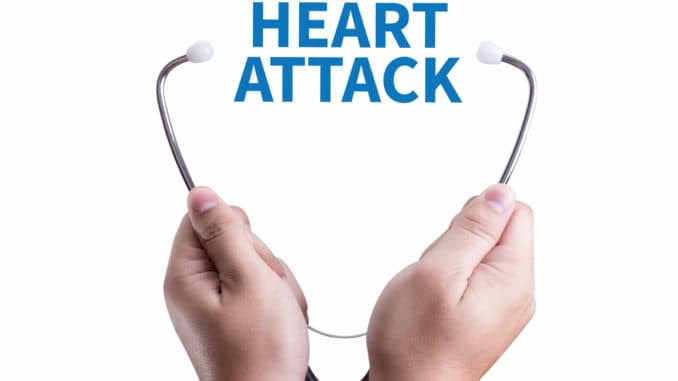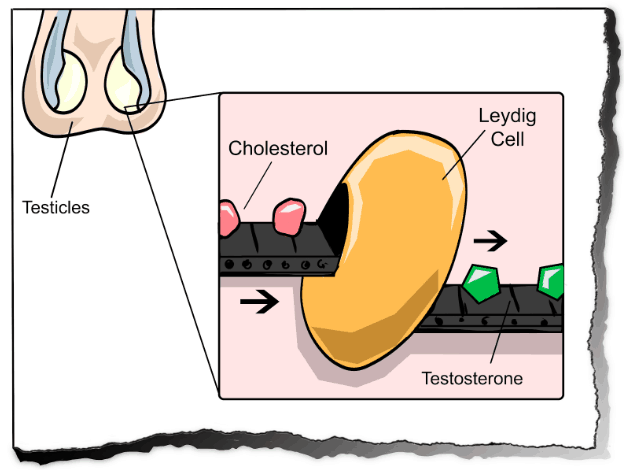
[cmamad id=”23758″ align=”center” tabid=”display-desktop” mobid=”display-desktop” stg=””]
Science just made a breakthrough in predicting heart attacks in men. This could save your life…
—-Important Message—-
Why taking blood pressure medication may not be in your best interest…
The blood pressure medications all work by tricking the body into lowering blood pressure.
But that may actually harm you.
When a man has high blood pressure, it’s because his blood vessels are stiff and clogged with plaque.
He needs something to relax his arteries, so they can easily expand every time his heart beats.
That will lower his pressure naturally.
It’s safe.
And it doesn’t harm you the way the blood pressure medications do.
I found a simple breathing trick that lowers blood pressure. You do it for 45 seconds, that’s all.
And your doc will tell you, “Stop taking the blood pressure medication.”
Here’s the simple breathing trick that lowers blood pressure problems for good.
P.S. It also naturally improves erections.
———-
Signs you are having a heart attack
Science uses many tests to predict heart disease and heart attack risk.
The medical profession used cholesterol as a marker for decades…
But now this is thoroughly discredited.
The two tests thought to be useful now are high-sensitivity C-reactive protein (CRP) and cardiac troponin 1.
A new long-term study shows that cardiac troponin I could finally provide an accurate blood marker for heart risk, outperforming high-sensitivity CRP.

The journal Circulation published this analysis of medical data.
The study looked at two different blood tests.
CRP is a marker of general inflammation.
It’s very good at telling you how inflamed somebody is – but it’s not very good at telling you why.
Cardiac troponin is a type of regulatory protein specific to the heart.
These proteins are important for heart muscle contraction.
Cardiac troponin has long been used to determine if somebody is having a heart attack.
But they didn’t know if cardiac troponin levels could predict an increased risk of heart disease or heart attack over time.
The study used information from a large health investigation undertaken in Norway.
Over 9,000 participants had a range of tests including the two blood tests under investigation here.
The participants were not in a risk category for heart disease or heart attack when the study began.
“C-reactive protein and cardiac troponin were measured in participants from the study. All study subjects were free from known cardiovascular disease at baseline.”
The study then took the data from these two blood tests and compared it to the number of people who suffered from heart problems over a 14-year timeframe.
[cmamad id=”23759″ align=”center” tabid=”display-desktop” mobid=”display-desktop” stg=””]
“733 participants reached the composite endpoint of hospitalization for heart attack, heart failure, or cardiovascular death.”
The study found clear cut-off points for both blood tests – points at which the risk of heart problems increased.
Both of these blood tests showed a predictive ability relating to future heart problems.
But the cardiac troponin blood test proved to be superior to CRP protein in predicting heart problems.
“Higher cardiac troponin 1 levels were associated with an increase in hospitalizations for heart problems… The risk associated with increased C-reactive protein was weaker.”
The results from this study place cardiac troponin 1 as the gold standard predictive test for heart disease and heart attack in individuals who are not known to be at high risk.
“In subjects from the general population without a history of cardiovascular disease, cardiac troponin provides prognostic information superior to that provided by CRP measurements.”
Cardiac troponin is now the leading test for heart risk assessment and to diagnose an active heart attack.
The results of this large and in-depth study will lead to greater predictability of future heart problems and therefore a greater chance of beneficial intervention in at-risk people.
If and when the medical community takes this blood test as the standard diagnostic, it could lead to a great reduction in heart attacks and heart disease.
Cardiac troponin 1 is one of three cardiac troponin proteins.
Though we do not yet know all the things that lead to an increase in cardiac troponin, we do know that chronic stress can increase cardiac troponin.
A study of the 2002 Boston Marathon showed that the levels of cardiac proponent tended to increase over the course of the marathon.
“Troponin increases were relatively common among marathon finishers and can reach levels typically diagnostic for acute myocardial infarction.”
The study of cardiac troponins – particularly how to lower them – could lead to great advances in heart health.
You should always see a healthcare professional about diagnosing and treating heart problems.
—-Important Message—-
Cholesterol is the key to higher testosterone
Did you know that cholesterol naturally turns into testosterone in a man’s Leydig cells?
Well, it’s true – it’s like a little factory process going on inside a man’s testicles.
Cholesterol goes in… And testosterone comes out…

But sometimes as men get older, this factory process slows down or stops entirely…
And this makes men’s cholesterol levels go UP while testosterone goes DOWN.
That’s why I created Factor C2T – it naturally restarts this factory process, so cholesterol goes DOWN and testosterone goes UP.
So men don’t need harmful cholesterol drugs like statins which can give men terrible erection problems.
———-

- Cardiac Troponin I Provides Superior Prognostic Information to C-Reactive Protein in the General Population: Data From The Nord-Trøndelag Health Study http://circ.ahajournals.org/content/136/Suppl_1/A16343
- Cardiac Troponin Increases Among Runners in the Boston Marathon https://www.sciencedirect.com/science/article/pii/S0196064406023328
- Cardiac troponins - NCBI https://www.ncbi.nlm.nih.gov/pmc/articles/PMC1770452/
- High Sensitivity Cardiac Troponin Testing: What is it and why do we care? https://blog.ucdmc.ucdavis.edu/labbestpractice/index.php/2018/05/15/high-sensitivity-cardiac-troponin-testing-what-is-it-and-why-do-we-care/
